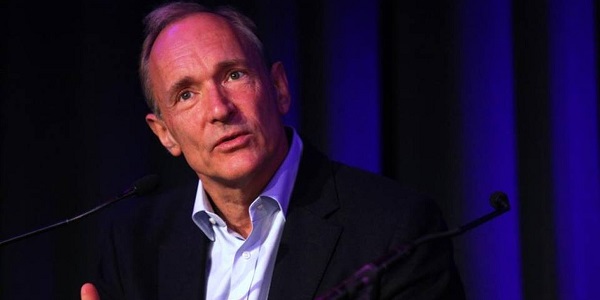Tim Berners launches campaign to save web
November 6, 2018 | Expert Insights

Tim Berners-Lee, the inventor of the World Wide Web, has launched a global campaign to save the web from the destructive effects of abuse and discrimination, political manipulation, and threats that plague the online world.
Background
Sir Tim Berners-Lee invented the World Wide Web in 1989. A graduate of Oxford University, Sir Tim invented the Web while at CERN, the European Particle Physics Laboratory. He wrote the first web client and server in 1990. His specifications of URIs, HTTP and HTML were refined as Web technology spread.
He is a Professor of Engineering at the Laboratory for Computer Science and Artificial Intelligence (CSAIL) at the Massachusetts Institute of Technology (MIT). He is also a Professor in the Computer Science Department at the University of Oxford.
Analysis
Berners-Lee, who invented the Web in 1989, said a sense of optimism about the internet had been damaged by abuses of personal data, online hate speech, political manipulation and the centralisation of power among a small group of major tech firms. In a talk at the opening of the Web Summit in Lisbon on Monday, the father of the web called on governments, companies and individuals to back a new “Contract for the Web” that aims to protect people’s rights and freedoms on the internet.
“For many years there was a feeling that the wonderful things on the web were going to dominate and we’d have a world with less conflict, more understanding, more and better science, and good democracy,” Berners-Lee told the Guardian. “But people have become disillusioned because of all the things they see in the headlines...Humanity connected by technology on the web is functioning in a dystopian way. We have online abuse, prejudice, bias, polarisation, fake news, there are lots of ways in which it is broken. This is a contract to make the web one which serves humanity, science, knowledge and democracy,” he said.
Under the principles laid out in the document, which Berners-Lee calls a “Magna Carta for the web”, governments must ensure that its citizens have access to all of the internet, all of the time, and that their privacy is respected so they can be online “freely, safely and without fear.”
Meanwhile, companies commit to making the internet affordable and accessible to all; respecting consumer privacy and personal data; and developing technologies that ensure the web is “a public good that puts people first”.
The contract acknowledges that internet users have their own part to play and calls for people to make web content that is “rich and relevant”; to build communities that respect civil discourse and human dignity, and to fight for an open web that is “a global public resource for people everywhere”.
Counterpoint
One of the early signatories to the contract, Facebook, has been fined by the Information Commissioner’s Office for its part in the Cambridge Analytica scandal; has faced threats from the EU for taking too long to remove extremist content, and has been sued for allowing advertisers to target housing ads only at white people.
Another early signatory, Google, is reportedly developing a censored version of its search engine for the Chinese market. “If you sign up to the principles, you can’t do censorship,” said Berners-Lee.
Assessment
Our assessment is that Sir Tim has become increasingly outspoken about companies that he says act as “gatekeepers” to the internet and “control which ideas and opinions are seen and shared”. We believe that Sir Tim has voiced out that companies such as Facebook and Google had grown so powerful, they might need to be split up unless rivals could reduce their influence.
We also feel that he has launched a start-up, Inrupt, to challenge the dominance of such large companies with a new “decentralised web”, where users own and control their data.








Comments